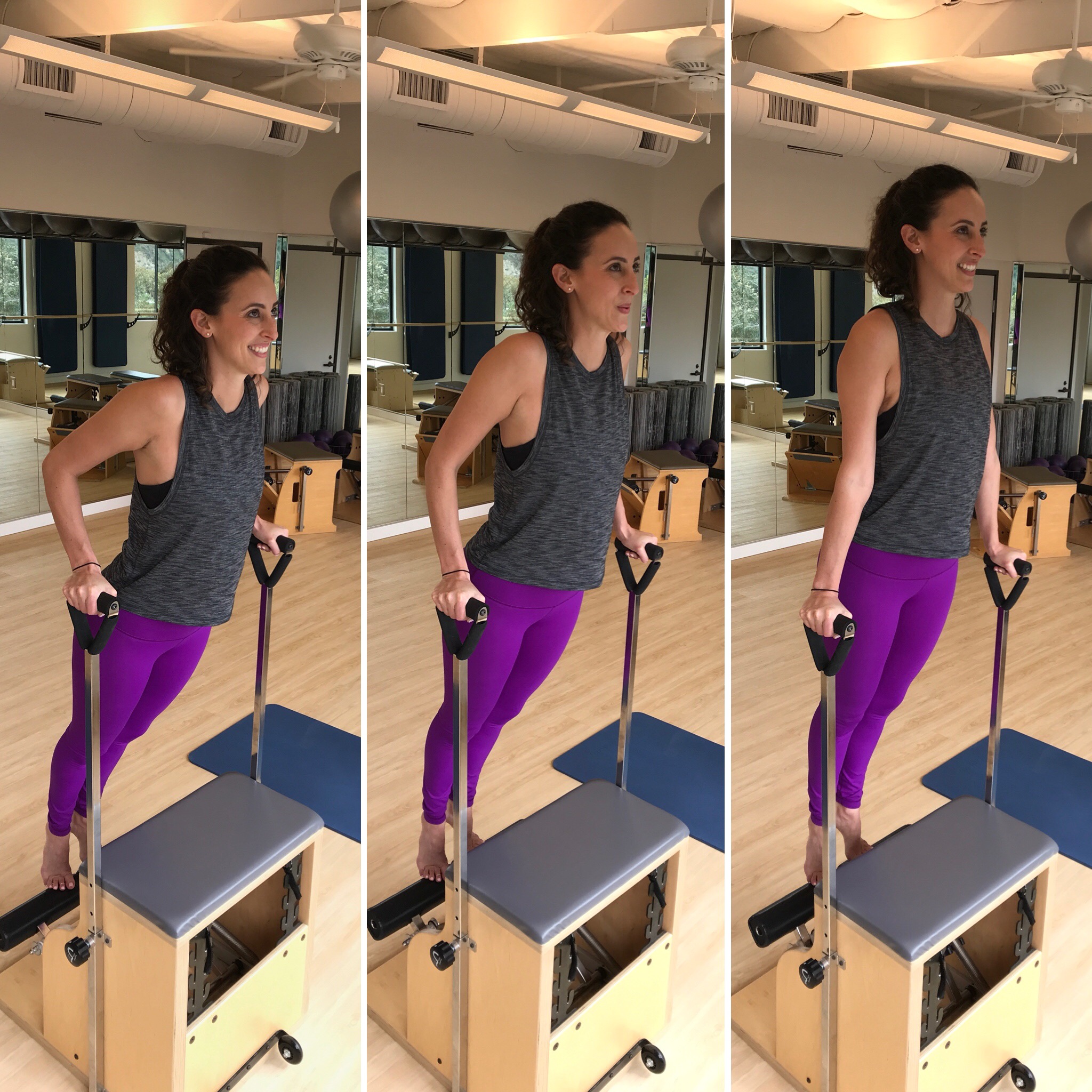Sitting at a desk 40 hours per week, my mind was fully stimulated, but my body was changing for the worse. I felt an overall sense of tension and I could feel my posture and strength declining. Like a lot of people in that situation (i.e. desk job), I knew I needed to do something to improve my physical health. That’s when my Pilates journey started.
At the time, I was going to graduate school for physical therapy, so I didn’t have a ton of free time to dedicate to exercise. There was a Pilates studio near where I lived, so I figured I’d try it. I set what I felt was a reasonable goal: two to three classes per week. After just a few weeks, I could feel my posture, strength and flexibility improve, and I felt a physical sense of relief, rather than tension throughout my body.

After doing Pilates for about a month, I realized that it was not only helping my posture and strength, but it was also helping me feel rejuvenated physically and mentally. Being in school, I started learning more about the impact workouts like Pilates have on our bodies as we age, and I knew it would be a tool I wanted to share with my patients throughout my career.
Everyone dreads getting older. As we age, we experience real, physical changes to our bones, muscles and coordination. The best preventative medicine for these less than ideal changes is exercise. With this in mind, I made it a point to continue Pilates at Studio Flo Pilates after graduate school. I have been able to take the foundational skills and concepts I learned at my last studio and improve upon them. This has not only helped me personally, but now I also feel like I can incorporate many Pilates concepts into treatments for my patients!
My physical therapy background is in Applied Functional Science (AFS), an approach that allows me to focus on the biological (human body), physical (environment/world we live in), and behavioral (mind/spirit) aspects that relate to healing and improving movement. Throughout my experience exploring many different physical therapy clinics, I found that some therapists treat only the specific body part where the patient is experiencing pain. With the AFS approach, we’re able to look at the biomechanics and the reaction at each joint, since they’re all connected. I feel it is my responsibility to watch my patients perform the activity or movement they are struggling with, and then perform therapeutic exercises and activities that are similar to that movement. Also, while many patients think of physical therapy as strictly rehabilitative, I have learned that physical therapy is also extremely effective as a prevention and wellness tool, just like Pilates!
This month, Lanette Weninger and I are teaming up to lead a workshop on what happens to our bodies as we age, and how Pilates can help prevent these changes. We will talk more in depth about the different muscle groups that tend to weaken first and affect us most, and how we can use Pilates to address those specific muscle groups. We would love to have you for a fun filled workshop on Saturday, March 24 from 2 p.m. - 4 p.m. We hope to see you there! Head to the SFP schedule to sign up.
-Ali Harper, PT, DPT, CAFS